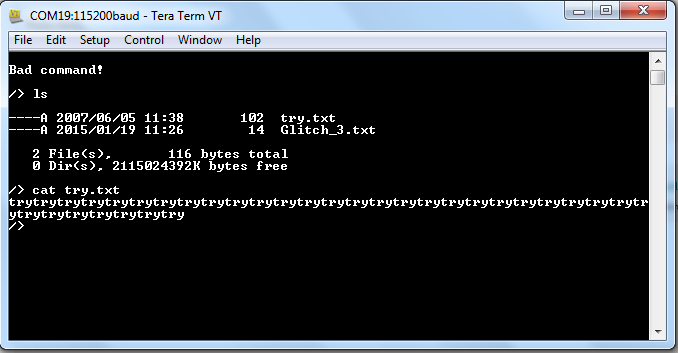Hi;
I want to use sdcard with SSi1 prepheral. Sdcard can mount but I get "New file creation error". What is the problem ?
My pin settings
#define SDC_SSI_BASE SSI1_BASE
#define SDC_SSI_SYSCTL_PERIPH SYSCTL_PERIPH_SSI1
// GPIO for SSI pins
#define SDC_GPIO_PORT_BASE GPIO_PORTF_BASE
#define SDC_GPIO_SYSCTL_PERIPH SYSCTL_PERIPH_GPIOF
#define SDC_SSI_CLK GPIO_PIN_2
#define SDC_SSI_TX GPIO_PIN_1
#define SDC_SSI_RX GPIO_PIN_0
#define SDC_SSI_FSS GPIO_PIN_3
#define SDC_SSI_PINS (SDC_SSI_TX | SDC_SSI_RX | SDC_SSI_CLK | \
SDC_SSI_FSS)





